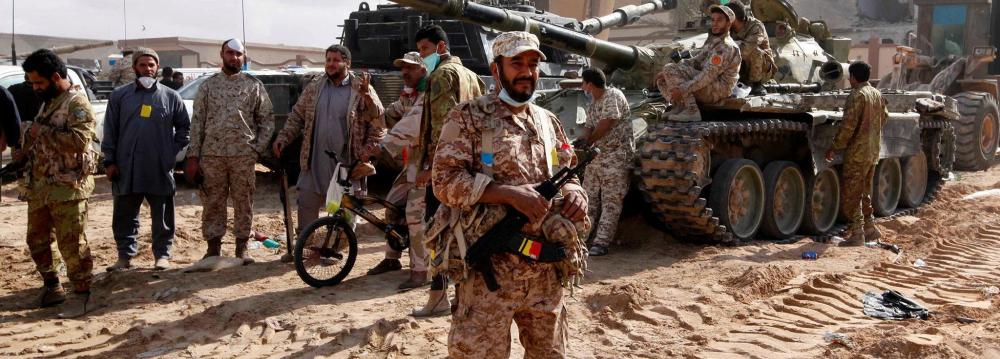Libyan pro-government forces say they have driven the self-styled Islamic State terrorists out of the last neighborhood of Sirte, declaring the battle for control of the city is over.
IS militants have been holed up for weeks in what was once the group’s North African stronghold.
Backed by US airstrikes, forces loyal to Libya’s unity government have been fighting for more than six months to drive the militants out of their North African stronghold, the Independent reported on December 5.
Earlier on Monday, more than a dozen IS fighters who had been holding out in Sirte surrendered to Libyan forces, officials said.
Rida Issa, a spokesman for the joint offensive against IS in the city, said forces led by brigades from the western city of Misrata “control all of Sirte’s Ghiza Bahriya neighborhood and are still securing the area”.
Once a city of 80,000 people, Sirte has suffered severe civilian casualties as IS has been accused of using the local population as human shields.
Reports estimated that at the end of October, there were just 100 IS fighters holed up in houses in Ghiza Bahriya.
The protracted final stages of the campaign to liberate Sirte, which began on May 12, bodes ill for the operation to clear the much larger city of Mosul in Iraq.
The terrorist group first took over Sirte in early 2015, setting it up as its most important base outside the group’s core territories in the region and expanding its control along about 150 miles of the Mediterranean coastline.
In recent days, Libyan forces say dozens of women and children have left the last group of buildings controlled by militants, and three more women fled on Monday.
The presence of the families has been one of the factors complicating attempts to push forward into the final sliver of land held by IS, while several women have carried out suicide attacks as they were being granted safe passage.
Meanwhile, Iraqi forces have begun shelling parts of west Mosul, residents said, preparing to open a new front against IS seven weeks into the campaign to drive the militants from the city.
Military commanders hope that by opening a second front within the city they can increase pressure on the few thousand terrorists who have deployed suicide bombers, snipers and militant cells against elite Iraqi troops in eastern districts.


